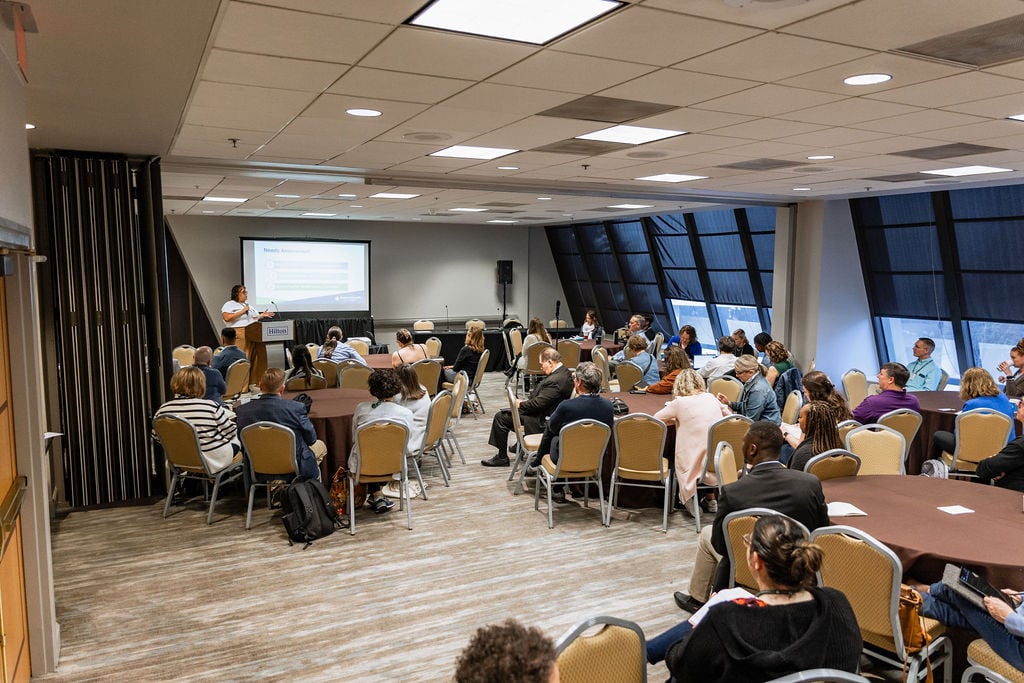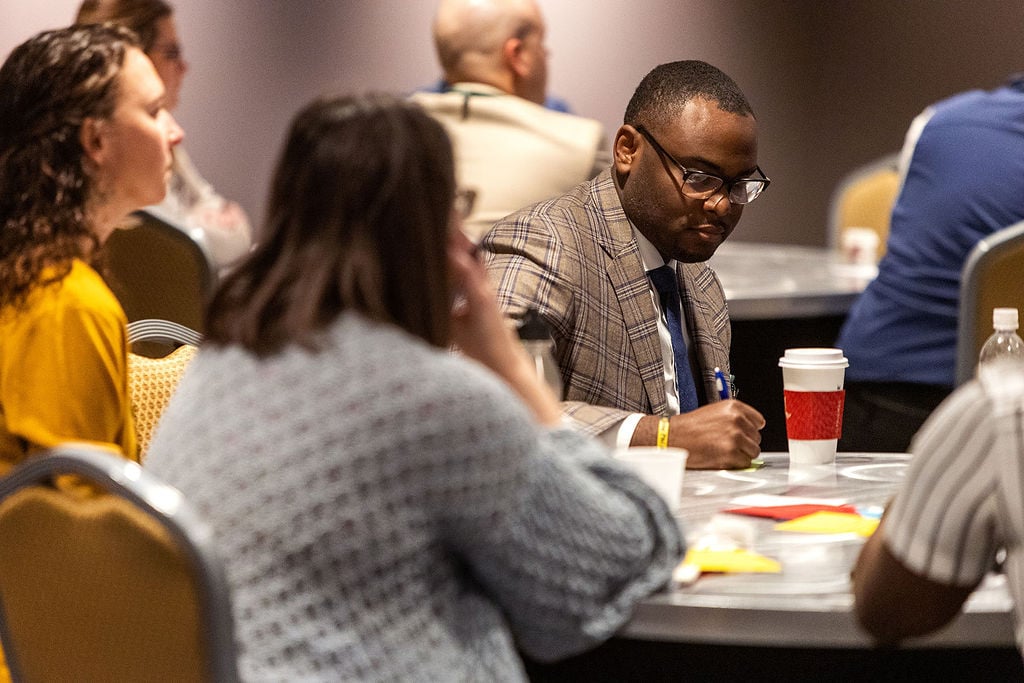John Barton, Rachel Pickett, and Alex Stephenson
In two rounds of campus-based sessions, teams of presenters from 19 different institutions shared projects, initiatives, and practices that they are using to enhance vocational reflection. If anything could stand out as a theme across 19 different sessions, it would be the importance of anchoring vocational reflection to the distinctiveness of a given institution. Here are three examples:

In a session called “Beyond Boundaries: A Framework for Whole-Person Education and Vocational Exploration,” a cohort of presenters from AdventHealth University (FL) presented on their “Whole-Person Education” project, which is funded by a NetVUE grant. AHU is a Seventh-day Adventist institution that specializes in healthcare education and is associated with that denomination’s non-profit healthcare system—one of the largest providers in the country. In the presentation, a faculty member, staff member, and chaplain reflected on the ongoing campus-wide process in which the institution’s different communities are reimagining curricular and co-curricular aspects of their mission around a vision of whole-person care and vocational exploration. They shared how their efforts draw on NetVUE’s scholarly resources, Harvard’s “Human Flourishing Program,” and the research of sociologist Christian Smith. This project has been shaped by AHU as an institution defined by a singular and coherent academic mission—to train healthcare professionals—so if similar projects were attempted at institutions with multiple schools, departments, and curricula, then other complexities and challenges would arise. Nevertheless, the AdventHealth University model is impressive and inspiring; the presentation invited participants to contemplate the ways it might translate into different contexts and its implications for higher education more broadly.
At Benedict College, Akilah Carter-Francique and her colleagues are preparing young men and women to strive for the power for good in society. At this historically Black college, creating a multigenerational community of love and support grounded in cultural context is critical for working toward a better future. Benedict’s mentoring program cultivates a safe and culturally relevant environment by ensuring access and equity. Like other mentoring programs, it emphasizes student intellectual growth and moral development along with fostering critical thinking, but its emphasis on cultural competency sets it apart. Fostering appreciation of Black American culture, in addition to developing cultural fluency in at least one other set of backgrounds, opens the door for a broader understanding of society and students’ vocations. Carter-Francique’s passion for her own vocation as a mentor and leader was contagious. Empowering students to feel confident that they have what it takes to address societal inequities is, as participant Ron Swain of Southwestern University (TX) said, “hard heart work.”

Finally, in their session “Fostering Literacies as an Element in Vocation Exploration,” Don Ezra Cruz Plemons and Ben Gottfried presented St. Olaf’s recent work in developing a “literacies framework” for their undergraduate students. This framework is designed to help students develop literacy skills in information, technology, data, generative AI and media, and contextualize those skills within their vocations. The session itself reflected the kind of integration between literacy and vocation that exists within this framework, as the presenters utilized the concept of an “inciting incident”—an event that moves a protagonist into the main plot of a story—to guide the audience through a discussion of their own vocations. As technology continues to evolve and we continue to face the age-old question of how to best prepare our students for the future that lies ahead, the work of those at St. Olaf and others encourages us to consider how the connections between literacy and vocation may contribute to our answer.
Whether a university like AdventHealth with its connection to a healthcare system, a historically Black college committed to specific cultural fluencies like Benedict, or a campus with a rich and evolving tradition within the liberal arts like St. Olaf, these schools all show the importance of anchoring vocational exploration to a specific institutional context—both for institutional authenticity and for distinctive vocational opportunities for students.


